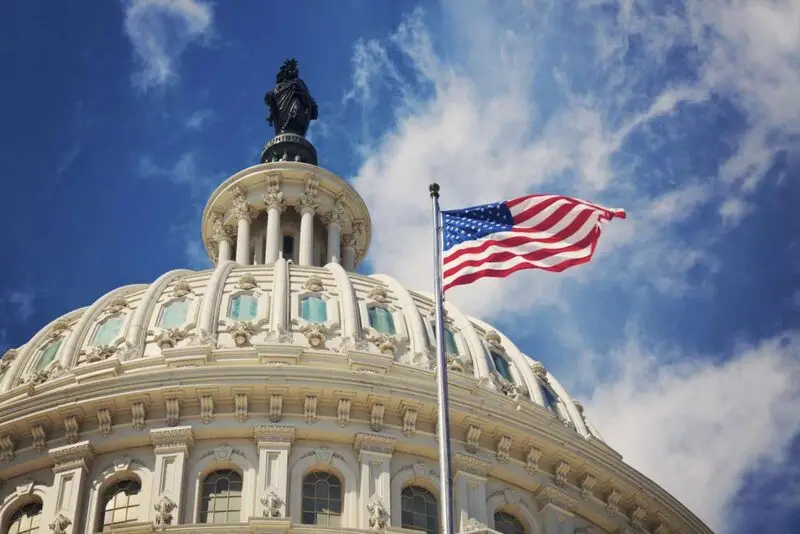US Democrats Propose Legislation to Eliminate Debt Ceiling US Democrats Propose Legislation to Eliminate Debt Ceiling
Fox News reported the US Democrats’ proposition of new legislation to eliminate the debt ceiling. According to the report, dozens of House Democrats have proposed the legal framework to allow the government to borrow capital “without any set limit by Congress.”
The devised legislation arrives after the United States Federal Government surpassed the $31.4 trillion debt ceiling last week. Moreover, House Republicans have countered the efforts of Democrats with the call for a cutback on record Federal spending.
US Democrats Seek Unlimited Federal Borrowing
For much of the last week, the United States national debt has been an intriguing story. It was a prospect that many saw coming, as the Federal Government surpassed the debt limit of $31.4 trillion. Thus, Congressional members began debating what to do now.
As the debt limit was surpassed, the US Treasury Department has reportedly been forced to take “extraordinary measures,” in response. Noting the ceiling reached has forced a halt on certain funding plans. This led to the department noting they have funds to last until the summer months of the year. Subsequently, enough time for the US House to engage in a conflict over a potential answer.
Currently, Democrats have proposed legislation to eliminate the debt ceiling altogether, allowing the government to, “borrow whatever it needs.” Alternatively, Republicans have called for a pledge from the Federal Government to lessen spending before the ceiling is adjusted at all. A stance that has Democrats worried Republicans could prohibit a ceiling increase altogether.

Republican Bill Foster stated, “Weaponizing the debt ceiling and using it as a pawn in partisan budget negotiations is dangerous and repeatedly brings our nation to the brink of default, which would be disastrous to the U.S. economy,” Fox reported.
Alternatively, federal spending has grown from a national debt of $9 trillion in 2008, to more than $31 trillion in just 15 years. Subsequently due to the housing crisis bailout, COVID response, and routine government funding.
Comments
Post a Comment